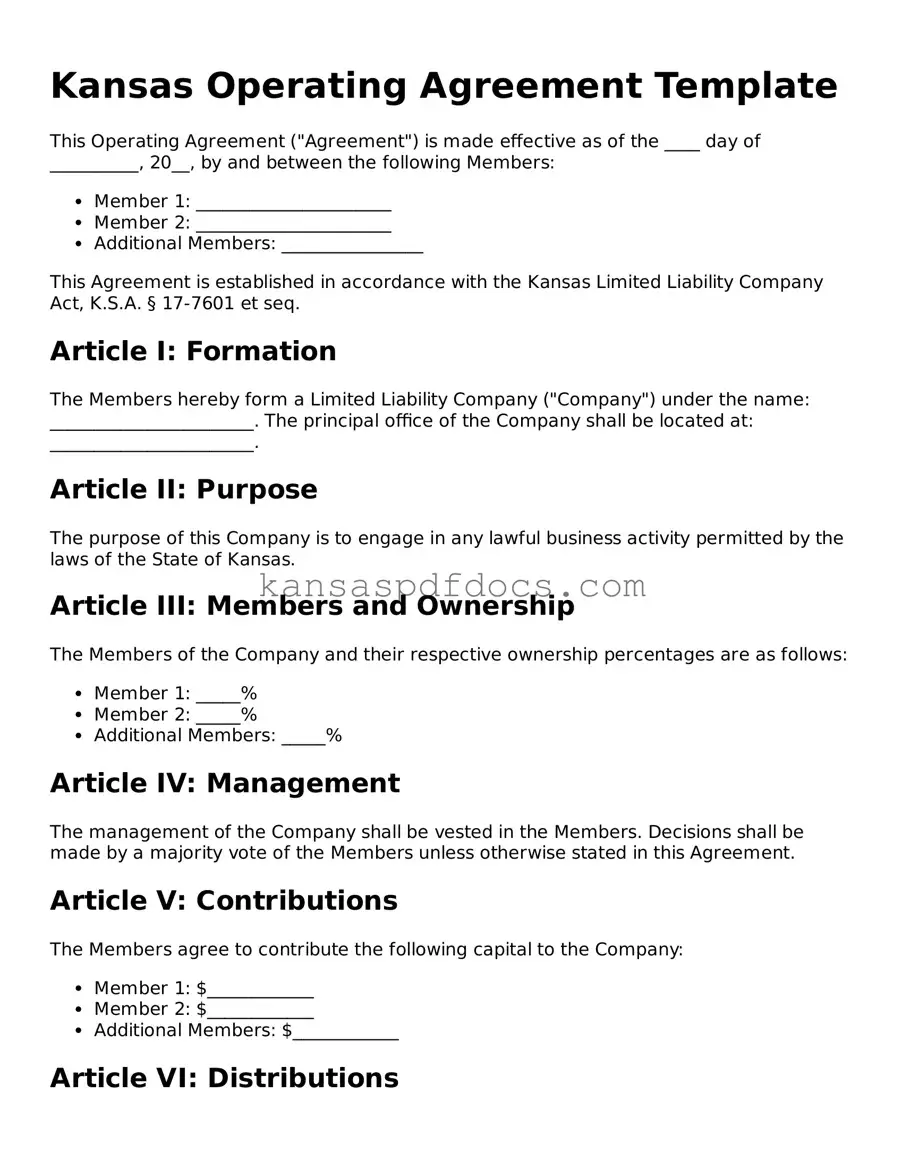Valid Operating Agreement Template for Kansas State
The Kansas Operating Agreement form is a crucial document for limited liability companies (LLCs) in Kansas. It outlines the management structure, operational procedures, and ownership interests among members. Understanding this form is essential for ensuring compliance and protecting the rights of all parties involved.
Access This Form Now

Valid Operating Agreement Template for Kansas State
Access This Form Now
Your form isn’t ready yet
Edit and finalize Operating Agreement online without printing.
Access This Form Now
or
Get PDF Form
